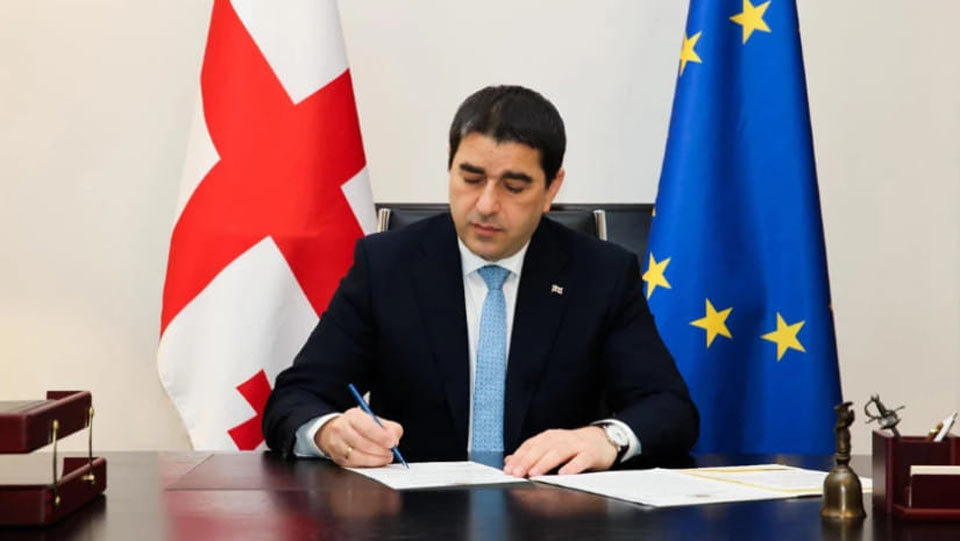Speaker signs Family Values Law: Massive mobilization on May 17 reflects Georgian support for legislation
The Speaker of the Georgian Parliament, Shalva Papuashvili, announced his decision to sign the Law on Family Values and Protection of Minors, which President Salome Zourabichvili previously returned unsigned.
Papuashvili shared his thoughts on social media, emphasizing the symbolic significance of the situation while critiquing both the President and the opposition.
He underscored that the law is based on common sense, historical experience, and centuries-old Christian, Georgian, and European values rather than being shaped by temporary ideologies.
“I know that signing this law may attract criticism from some foreign partners. However, we Georgians have never shied away from external opinions when our faith, common sense, and loyalty to our country have guided us—especially when we have observed the currents of civilization veering in the wrong direction. This mindset has sustained us through the millennia and preserved our identity. Simultaneously, we experience substantial support for this law among millions of people abroad,” stated Papuashvili.
He also emphasized that the law respects the rights of all citizens, including freedom of expression, while ensuring not to infringe upon the rights of others—something he described as the essence of true democracy.
“Tolerance has always been, is, and will continue to be a defining characteristic of the Georgian people. However, we must comprehend that true tolerance entails coexisting with mutual respect rather than undermining civil peace by disregarding the beliefs and values of others.
This law has garnered widespread public support. On May 17, 2024, nearly a million Georgian citizens took to the streets nationwide, effectively conducting a public referendum in favour of this legislation.
Throughout its adoption process, we engaged in discussions with representatives from various religious denominations, and both the Georgian Orthodox Church and other faith communities wholeheartedly endorsed its principles. Thus, for me, signing this law carries the utmost legitimacy—it is a signature supported by both the nation and the church,” concluded Shalva Papuashvili.

